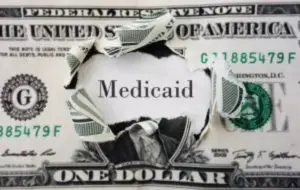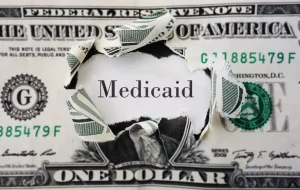
What Is A Health Care Lien?
Liens are an enormously frustrating aspect of a personal injury settlement. In a nutshell, this is the set up:
If you are injured and bring a personal injury case, you may receive a recovery from the defendant by settlement or verdict. Out of your portion of the recovery, you are required by either law or contract to reimburse the federal, state or private insurance company for the money it paid for treatment for the injuries that you claimed in your lawsuit.
For example, you may have health insurance coverage from a private insurance company such as Blue Cross, UnitedHealth, Anthem, Cigna, Humana, and the like. By virtue of contract, that is, you or your employer’s health care plan documents, you have a contractual obligation to satisfy a health care lien on your recovery. The lien amount is for all or, usually, a percentage of the amount the insurance company paid your physicians and hospitals for the treatment they gave you for your injuries.
As your personal injury attorneys, we are obligated to honor these liens, but we work very hard to try to reduce them for you.
For a free legal consultation, call,
(888) 585-2188
How Can A Health Care Liens Impact My Personal Injury Settlement?
For example, if a client is:
- Injured by a defective drug or medical device.
- And had his/her health insurance company pay for the treatment of any injuries caused by the drug/device….
Then the lien holder (Medicare, Medicaid or private insurance company) has a legal right to recover the money that it paid for that treatment from your personal injury recovery related to the drug or device. So, for example, if your settlement is $9,000, and your net recovery after attorneys’ fees is $6,000, then out of your portion of the recovery, you need to reimburse the health insurance lien. If the lien is $1,000, then from your $6,000, you will need to reimburse the health carrier the amount of the lien.
But I Paid My Premium and Deductible for My Health Insurance. Why Is There a Lien?
This is a common question asked when a lien is asserted by a health insurance company.
A premium is the monthly cost of health insurance coverage. It is the cost of the coverage and cannot be used to reduce any lien amount. In other words, your premium does not serve as a set-off against the amount of the lien. The deductible is the amount you must pay out of pocket before your health insurance provider will cover most eligible expenses. A health insurance company cannot assert a lien for any amount a patient paid out of pocket prior to satisfying a deductible.
This seems incredibly unfair, right? You faithfully paid your premiums, but now you have to reimburse the health insurance company and you don’t even get a rebate on your premiums? Regrettably, that’s right. And it stinks.
A lien can only be asserted on expenses directly paid by a health insurance provider to cover treatment for injuries that a client is compensated for in a personal injury settlement. If your personal injury case is not successful, you owe nothing to your insurance company beyond your regular premium and deductible expenses. And you do not owe a lien for any injuries or illnesses that you may have that are not related to your personal injury claim.
Medicare, Medicaid and Veteran Administration (VA) Liens Deducted from Settlements
Liens can be asserted by government-based benefit providers such as the VA, Medicare, and Medicaid.
Government liens can be the most time-consuming liens to resolve at settlement. It is very important to inform your attorney of any government-based health insurance used to cover the treatment of your injuries.
Click to contact our personal injury lawyers today
What If I Don’t Want My Attorney to Withhold Any Liens?
The law requires your attorney to honor these liens. So, unfortunately, your attorney does not have a choice. If the liens are not paid, both you and your attorney could ultimately be held financially responsible. Also, a failure to pay Medicare liens could result in penalties and interest on top of the amount owed. For a health care lien, your insurance company could refuse to pay future bills for you if it is not satisfied.
Complete a Free Case Evaluation form now
How Do We Get The Liens Reduced?
Typically, both public and private lienholders will reduce the amount of their liens. The amount of the deduction differs in every case and every settlement. As your lawyers, we work hard to get the greatest lien reduction for you as possible. We often partner with professional lien reduction companies who will help us negotiate these liens. While these company, of course, charge for their services, those charges are well worth the cost for the benefit they achieve for our clients.
Why Does It Take So Long to Negotiate These Liens?
What makes liens so particularly frustrating is the length of time that it takes to obtain the lien information from the health carriers and to negotiate a reduction.
The insurance companies and the government most often refuse to negotiate until a case is settled. They want to know the amount of the settlement to understand their position. Incredibly, there is no time schedule or penalties for an insurance company to respond to a lien. Many do not make it a priority and sometimes the bills paid must be retrieved from years past. Governmental liens such as Medicare and VA benefits are notoriously slow at responding. COVID-19 has made this process even slower. It can take many months and sometimes more than a year to negotiate a lien because of the lack of responsiveness from the lien holder.
Unfortunately, there is often nothing an attorney can do to speed up this process except to be persistent. And even that does not always work.
How Jenner Law Firm Can Help
Lien negotiation can be a difficult, frustrating and time-consuming process. We have the experience necessary not just to obtain a just result in your settlement but also to negotiate complex liens and we will fight to obtain the best outcome possible.
Questions About Health Care Liens?
I’m sure this blog has raised more questions than answered them. The experienced personal injury attorneys at Jenner Law Firm are here to help. Give us a call and we’ll be glad to discuss liens with you.
Call or text (888) 585-2188 or complete a Free Case Evaluation form

